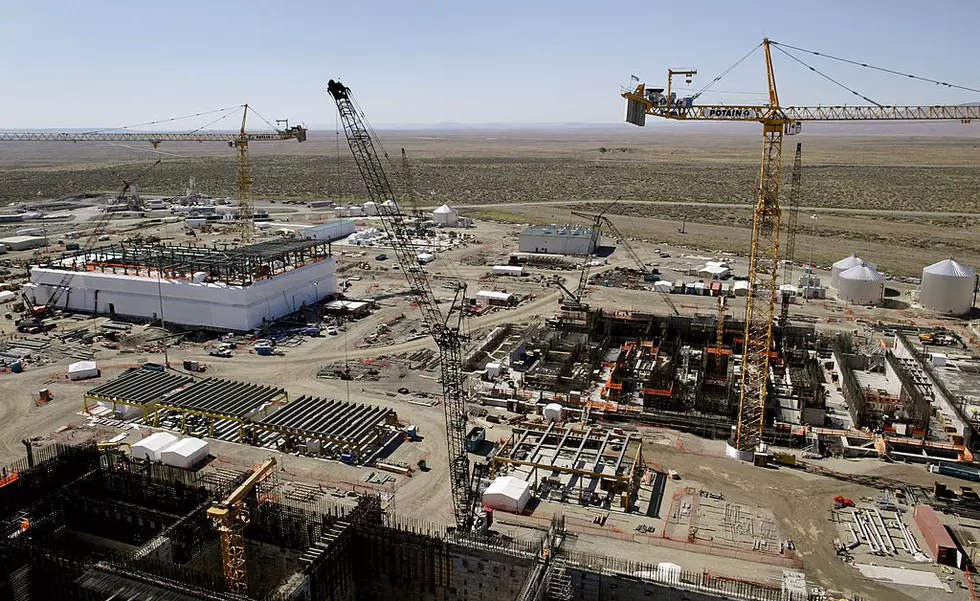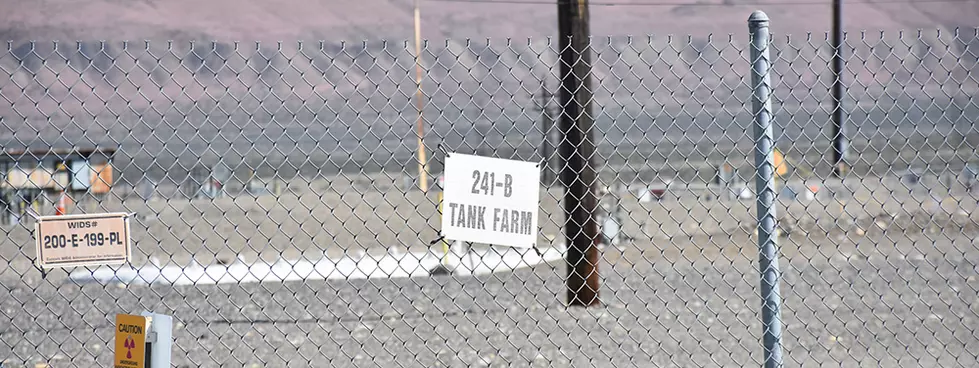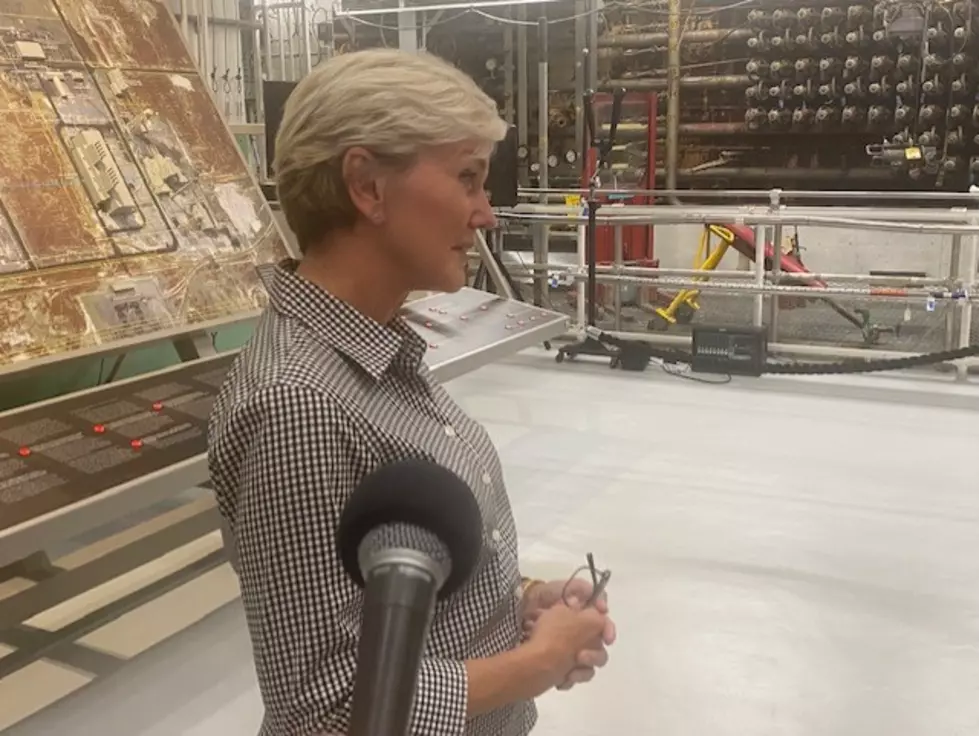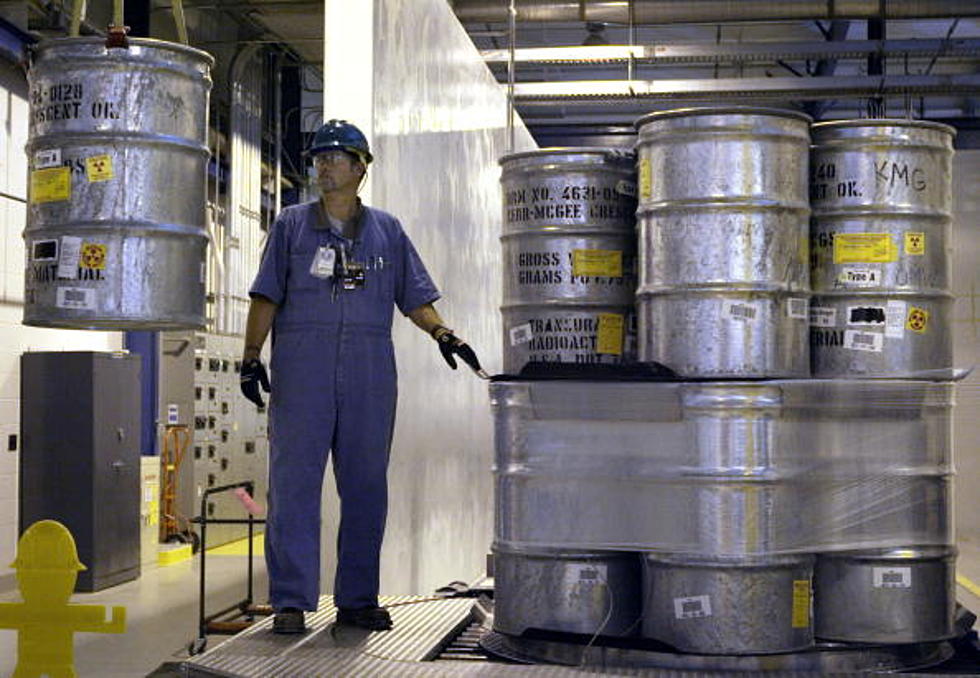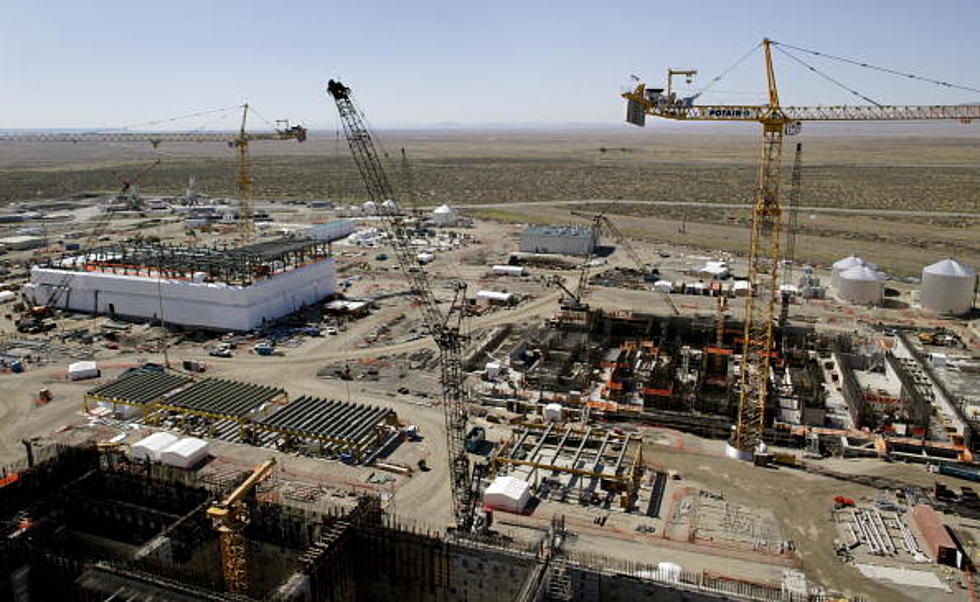
Watchdog Group Says DOE Plan for Leaky Hanford Tank is Insufficient
The Department of Energy is taking criticism from a Hanford watchdog group over it's plans to delay pumping from a leaky Hanford tank until 2016. (Image courtesy of KNDU-TV)
AY-102, the oldest of the double-shell waste storage tanks at Hanford, has shown evidence it's leaked at least three times in the last year. A recent video inspection between the walls of the double-shell vessel show a dried plume of waste that wasn't there in September, 2012 - the last time video inspection was done. Two other dried leaks were detected and announced last October, this third leak was 7 feet long and nearly two feet wide. Officials don't know the exact location of the leaks, but no evidence has been found that any waste made it outside the tank into the ground.
Hanford Challenge, a group focused on the cleanup at the Hanford site, says DOE plans to begin pumping waste from that tank will take too long.
Monday, Tom Carpenter of Hanford Challenge said that legally the DOE is supposed to be ready within "48 hours" to begin removing liquid waste from any tank that shows signs of leaking. According to The Columbian Newspaper:
"According to the pumping plan, preparations for retrieving waste would be done in two phases. The first phase, to be completed by November 2015, would include a design, the purchase of equipment and installation of the equipment outside the tank.
Then DOE would determine when waste retrieval equipment should be installed inside the tank and when waste removal should begin."
AY-102 is the oldest of the 28 "newer" double-shell tanks that were built starting in the 1960's to replace the 149 single-shell waste tanks, of which 67 are known to have leaked and one is suspected of currently leaking. Most of the liquid waste has been moved to the newer, larger double-shell tanks. AY-102 is nearly 40 years old, and has outlived it's life expectancy by at least 20 years.
The long-term plan is for the waste from plutonium weapons production at Hanford to be treated at the VIT plant.
More From 870 AM KFLD
